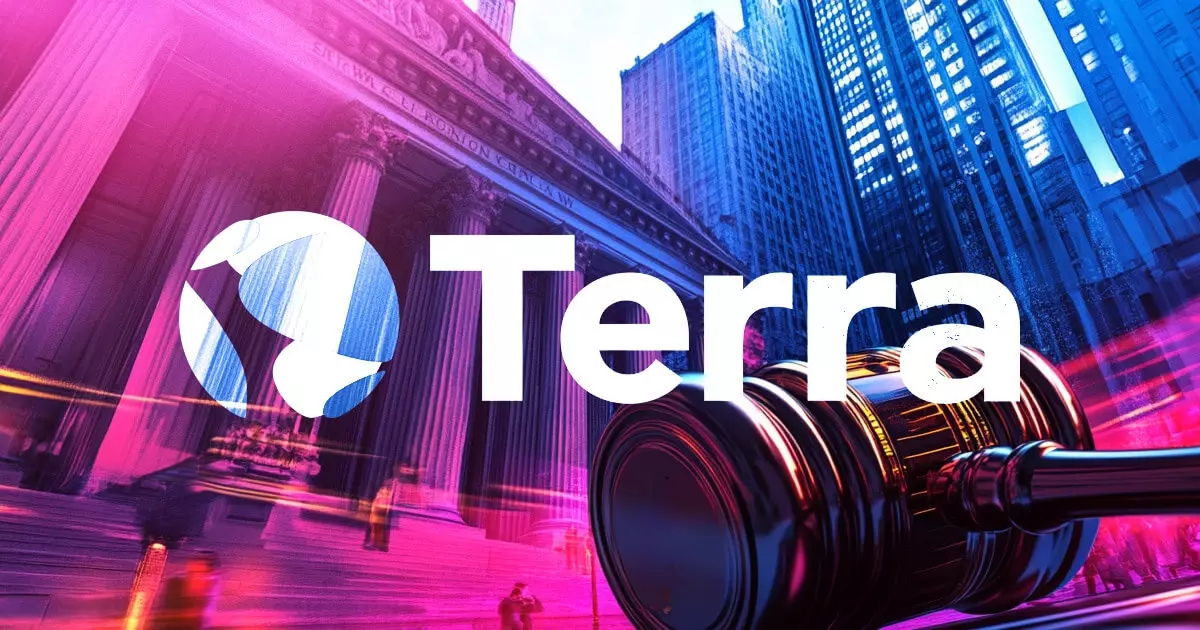In an unprecedented move that highlights the ever-evolving landscape of cryptocurrency regulation, the U.S. Securities and Exchange Commission (SEC) has charged Tai Mo Shan Limited, a subsidiary of Jump Crypto, for allegedly misleading investors regarding the stability of Terra USD (UST). This legal action centers on claims that Tai Mo Shan engaged in trading practices that created a deceptive narrative suggesting UST was consistently underpinned by its advertised algorithm, which was purported to maintain its $1 peg. However, when the stability of UST came into question in May 2021, it became apparent that the support was far from organic.
Following the collapse of UST’s dollar parity, Terraform Labs allegedly coordinated with Tai Mo Shan in a substantial intervention, orchestrating over $20 million in UST purchases. This action was purportedly aimed at restoring confidence in the stablecoin’s purported technical viability. Yet, the SEC asserts that these interventions reveal a deeper truth: the algorithmic mechanisms promised by Terraform were insufficient on their own, relying heavily on Tai Mo Shan’s external financial support to stabilize the price. This revelation fundamentally challenges the integrity of Terraform’s claims regarding UST’s price sustainability.
The SEC’s findings shed light on an intricate web of incentives that were in place to facilitate the purchasing of UST. Specifically, Tai Mo Shan was reportedly allowed to acquire LUNA—another token within the Terra ecosystem—at a discounted rate following the stabilization of UST. Such arrangements raise critical questions about the ethical obligations of companies operating in the rapidly expanding and often opaque crypto market. The SEC posits that these incentives not only misled investors but also effectively contradicted Terraform’s assertions of UST’s autonomous viability.
Charges against Tai Mo Shan go beyond mere market manipulation; they dive into the realm of securities law. The SEC contends that Tai Mo Shan acted as an unregistered underwriter by selling LUNA tokens into the market after acquiring them from Terraform. This practice, which involves profiting from token sales without proper registration, constitutes a serious breach of securities regulations in the United States. Consequently, Tai Mo Shan faces significant financial repercussions, including over $123 million in disgorgement and penalties.
The condemnation of Tai Mo Shan comes in the backdrop of a broader crisis for Terraform Labs, whose ecosystem has faced increasing scrutiny since the catastrophic collapse of UST in 2022. The incident not only unveiled substantial flaws in the stablecoin’s foundation but also obliterated investor confidence. As a result, Terra Classic (LUNC) continues to trade at inexplicably low valuations, while a new token, Terra (LUNA), was introduced in a somewhat desperate bid to revitalize the network.
Legal challenges have compounded the struggles faced by Terraform Labs and its co-founder, Do Kwon. Following the exposure of deceiving practices, the firm filed for Chapter 11 bankruptcy in January 2024, revealing a daunting range of assets and liabilities estimated between $100 million and $500 million. Meanwhile, leadership shifts reflect an urgent need to stabilize the organization amidst ongoing regulatory and financial turmoil, with Chris Amani stepping in as the new CEO in hopes of steering the company back on course.
As Terraform searches for a path to recovery, the atmosphere surrounding its operations remains tainted by mistrust. The collapse of UST alone precipitated losses exceeding $40 billion across the cryptocurrency ecosystem, shaking the foundations of an already fragile market. In an attempt to restore credibility, Terraform launched a new chain and token; however, the specter of past controversies persists, undermining any genuine efforts at rehabilitation.
The involvement of prominent industry entities in Terra’s downfall adds complexity to this case. Accusations from industry insiders regarding collusion among firms like Digital Currency Group and FTX to attack Terraform proliferate the narrative of vulnerability prevalent in the crypto space. The association of Terra-linked tokens with securities regulations by the SEC has further intensified governmental scrutiny, underscoring the necessity for improved transparency and compliance in cryptocurrency issuance.
The saga of Terra highlights critical challenges in ensuring ethical practices within the cryptocurrency landscape. As regulators take a closer look at what constitutes a security in this volatile market, the lessons learned from the Terra episode will likely shape the future of securities enforcement and investor protection in the emerging digital economy.

